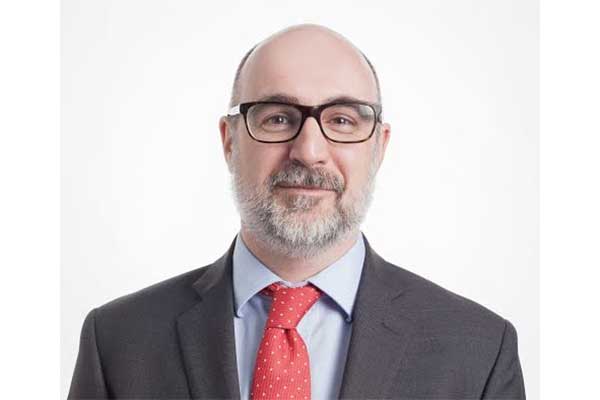
Kitchen ... testing year for Mena equities.
UAE, Egypt equities seen returning best returns
DUBAI, March 9, 2016
Top global institutional investors and leading Mena companies see best three-year returns in the UAE and Egypt, according to a report from EFG Hermes, a leading investment bank in the region.
They are also evenly split on whether Mena equities will outperform their emerging market peers over the coming three years, added the first EFG Hermes One on One Mena Consensus: Taking the Pulse of Mena.
The first annual EFG Hermes Mena Consensus, a unique real-time survey of 455 institutional investors from around the world and senior executives from 117 major listed Mena companies who gathered recently in Dubai for day one of the 12th Annual EFG Hermes One On One.
The live survey was a feature of a headline debate on whether “Mena can escape the boom and bust cycle of oil.” The debate featured Hedi Ben Mlouka (CEO of Duet Mena) and Bishoy Azmi (CEO, Al-Shafar General Contracting) arguing in the affirmative, while Ashraf El Ansary (CIO, Exante) and Catherine Bolgar (former managing editor of Wall Street Journal Europe) argued an escape was unlikely.
“This year will be testing for global and Mena markets,” said Simon Kitchen, head of Macro Strategy at EFG Hermes. “Liquidity is tightening; volatility is rising across asset classes. Commodity prices are collapsing, China is rebalancing and energy markets are undergoing a fundamental change. Meanwhile, populists are gaining ground in both the US and Europe.
Azmi led the panel discussion, noting that the boom and bust cycle will smooth-out over time as “countries that have depended on oil and not been competitive go through structural reforms.”
He pointed to the United Arab Emirates as a perfect example, noting the strides it has taken to diversify its economy and, since August 2015, to slash subsidies. “Will change be painful? Yes — and we’re already in a painful period, but it’s a necessary evil as we build economies that are more resilient and that create smoother growth.”
Speaking against was former Wall Street Journal editor Catherine Bolgar, who said the region continue to suffer from what she called “optimism bias,” suggesting that “You see booms as normal and busts as a surprise. The region hasn’t taken the boom times to invest in the diversification of economies, and if it hasn’t done so before, why would it do so now?”
While Azmi and Ben Mlouka of Duet Mena both saw Mena’s large and uniquely young demographic makeup as significant — Ben Mlouka called it “the largest, most affluent young population in the world” — Bolgar sees it as a “serious challenge” particularly as there is “no entrepreneurial culture ready to take on and diversify the economy.”
Asked to respond to the notion that “it’s too late — you can’t have more than one Dubai,” Azmi noted, “Absolutely not.” These are countries with low debt and good access to capital. They have young, growing populations. Given the right policies, they can still convert into fantastic models — they’re in much better places today than many other countries in the world with aging populations and no liquidity.”
Added Ben Mlouka: “Mena countries can pull lots of levers: They generally have low-to-no net debt. Taxation is still too kind to business — there is room there in many countries. The demographics are a positive, not a negative.”
Speaking as an investor, Exante’s El Ansary noted that “the timing of the debate is great: Commodities are on the rise year-to-date, with iron up 20 per cent and zinc rising 40 per cent, but oil is down 10 per cent. And from an equities point of view, we’re lagging both developed markets and other emerging markets.”
The challenge, he said, is that when you compare the 2002-07 cycle to 2009-14 — pre- and post-the financial crisis — “energy’s contribution to GDP growth has gone up in the GCC, and GCC economies are have much larger shares of foreign direct investment, grants and central bank deposits to Egypt, Morocco and Tunisia. Everywhere you turn, the petrodollar has become more important, making it even more challenging to structure a case for how our markets can diversify, particularly when you consider technological change in the petroleum industry.”
Shale technology, he said, is closer to a manufacturing process than a traditional E&P operation. The shorter response function and lower CAPEX requirements of shale will eventually dampen volatility in the oil market, albeit at lower prices.
“Mena valuations used to trade at premium to Western and other EM markets,” El Ansary noted. “This was justified because margins were strong. However, they have declined in a structural fashion. They didn’t recover after 2009 because of the slow North African recovery, more competition between retailers, lower net interest margins for banks because we were in a lower interest rate environment, and because places such as Dubai faced competition in the holiday homes market from Greece, Spain and others with lower prices than 3-4 years ago.”
Ben Mlouka said: “In terms of valuations, we’re nearing post-Lehman levels in the GCC. Price-to-earnings is at 12x; the bottom in 2009 was 10.5x. Price-to-operating cashflows are at 6.7x against 5.5x at the bottom.” Dividend yields in the region also compare very favourably compared with emerging market averages.
“We’re coming from a low base, but across the spectrum of reforms — from subsidy cuts to opening to foreign investment and reducing foreign ownership limits — we’re moving in a direction that will result in better price discovery, better allocation of savings and better functioning capital markets, all in more robust economies that will include a tax component that give corporations comfort on the state’s long-term direction,” Ben Mlouka noted. – TradeArabia News Service







